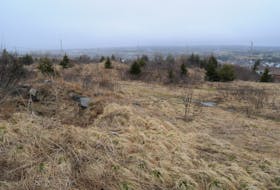In an effort to help inform surveillance of deadly, non-native bat diseases, the provincial government is encouraging residents to report bat sightings this winter.
Since May 2017, several cases of white-nose syndrome (WNS) have been confirmed in bats on the province’s west coast. The diseases has already causes widespread mortality in hibernating bat species throughout the Maritime provinces and northeastern United States.
Both the little brown myotis and the northern myotis in N.L. are susceptible to WNS, which impacts bats in winter and early spring while they hibernate in underground sites such as caves and abandoned mines. As a result, the animals use up limited energy reserves and can become severely dehydrated, and often perish.
Public reporting of dead or sick bats, or observations of bats flying in winter or early spring, is an effective means of detecting the appearance of WNS in new areas and tracking its spread.
The public is also asked to report any locations where bats are known or suspected to be hibernating, or whether bats have been observed to hibernate in any non-typical underground sites, such as abandoned root cellars or old wells.
The public is urged to avoid entering any known or suspected hibernation site, and to report sites to officials with an accompanying GPS coordinate and photograph when possible. Visiting such sites could unknowingly spread fungal spores of the disease. It is important to never touch bats with bare hands.
To report bat and hibernacula sightings, contact the Canadian Wildlife Health Cooperative toll-free bat line at 1-833-434-BATS (2287) or the Forestry and Wildlife Research Division at 709-637-2025.








